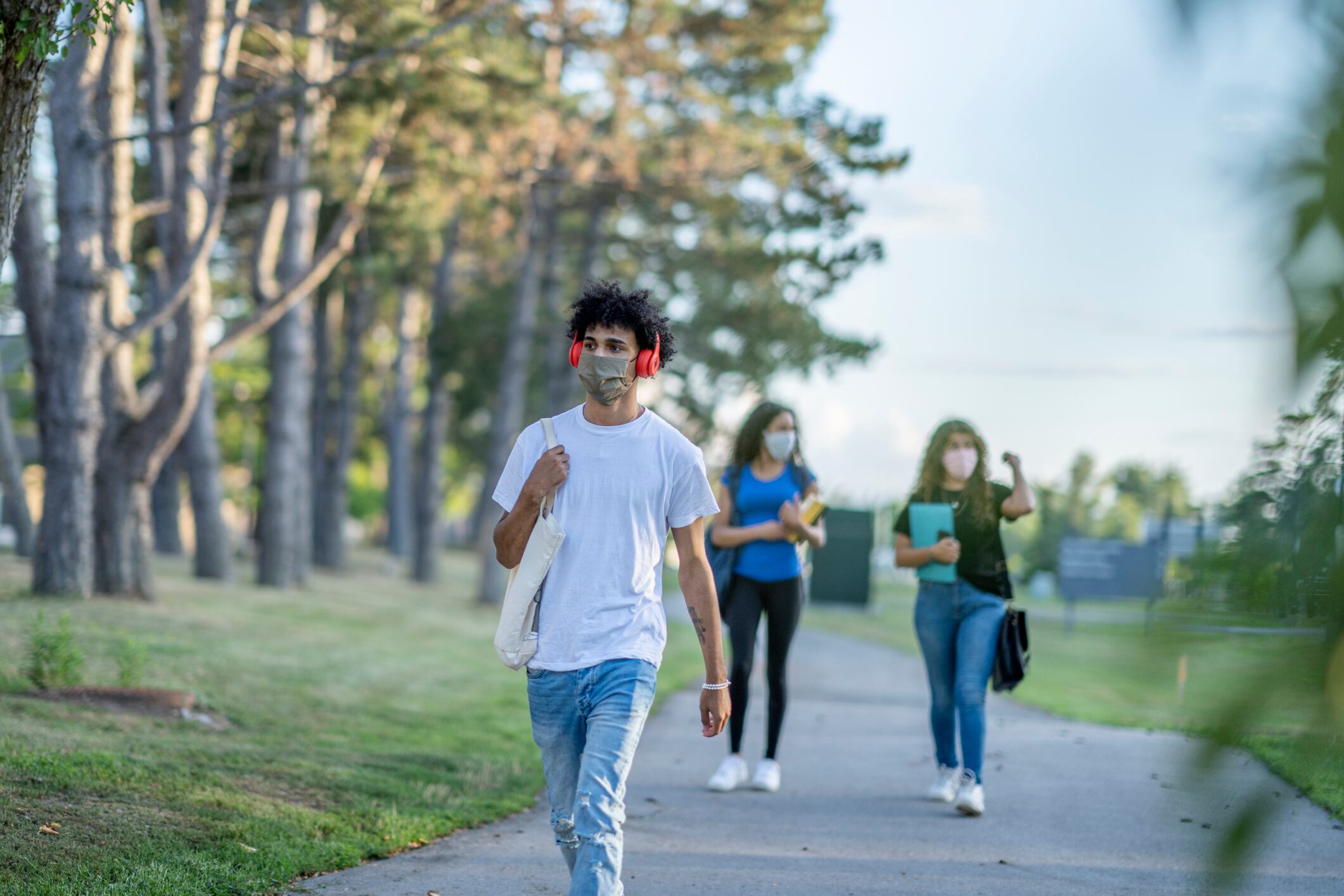Colorado College this week shut down its campus after an outbreak of COVID-19 within half a month of students’ return to school. Now it faces the challenge of preventing its students from acting as coronavirus vectors as they return home or rent elsewhere.
Leading U.S. health experts are warning schools to take caution in sending students home.
Administrators of the private Colorado Springs school face the dilemma of other universities across the country that have sent students off campus: how to keep inherently social beings from gathering and potentially spreading the virus among their classmates, families, and others, and how to decide how far the college’s responsibility extends.
And while students are at the center of the outbreaks, it’s unfair to place blame on them for the inability of schools to keep campuses open, said Daniel Goldberg, a University of Colorado Anschutz bioethics professor.
“The level of the failure is not the individual acts,” Goldberg said. “This is a very tough problem and I don’t know if there is a safe enough way to do this.”
After students moved in in mid-August, 11 Colorado College students tested positive for the coronavirus, and the school quarantined residents of three dorms — Loomis, Mathias, and South halls. About 800 of the college’s 2,100 undergraduate students had returned to live on campus for the first “block,” the way the college organizes its academic year into short sessions.
On Tuesday, the school announced it would move from in-person to mostly remote learning. It would require the majority of residential students to move off campus by Sept. 20.
“The quarantines of entire residential halls significantly limit our ability to provide a quality residential and academic experience for students,” acting co-presidents Mike Edmonds and Robert G. Moore said in the letter.
Colorado College junior Isabel Hicks said she doesn’t fault the school for the closure, but is frustrated with the broader coronavirus pandemic. She’s watched as other schools have decided to stop widespread in-person learning, including the University of North Carolina at Chapel Hill, Michigan State University and the University of Washington.
Hicks, who is putting off college until 2021 after Colorado College’s decision, said she wished schools had thought through more scenarios before opening.
“But I don’t blame them for trying,” she said.
The school is following El Paso County Public Health regulations on releasing students from quarantine to travel, according to Leslie Weddell, school spokeswoman. The quarantine will be up by the time the first block ends.
After initially testing all dorm residents, the college performed hundreds of random weekly tests, receiving those results within several days. The college also is contact tracing.
Residential students will be quarantined for 14 total days and are to remain alone or with their roommate and to not have contact with anyone else, according to Weddell.
It’s not certain how the college will enforce those rules.
For students the college finds have interacted during quarantine with someone who tests positive for COVID-19, authorities will extend their quarantine by 14 days. The school also said it will not permit student travel by commercial airline, train, bus, or other shared transport during isolation or quarantine.
Some students may go home if their families live within a few hours of campus, but they must be accompanied by a family member and not stop during the trip. Students can also quarantine with family members at hotels.
Students expressed surprise and disappointment.
Annie Seymour, a freshman quarantined in South Hall, said she had expected the college to go remote after the first case on campus, but not so soon. Many students like her wanted to begin college in person and she said she would have deferred college if the school had planned for remote learning.
She said she understands why the college needed to stop in-person learning and applauded the school for being responsible in how it quarantines students.
“It’s just a bummer. It’s been pretty frustrating having to stay in your room, and just having like an hour of outside time a day,” she said. “You can’t even interact with people.”
If other Colorado schools want to remain open to in-person learning and avoid the same fate as Colorado College, Goldberg said they’ll have to ensure that they effectively cut out risky student behavior and that they conduct robust testing.
Controlling a pandemic goes against the very nature of college campuses, he noted. University communities prioritize socialization and learning among groups, and young adults are primed for that behavior.
“If you are dependent on college kids behaving like you want them to behave, that is not a good plan,” Goldberg said.
Schools such as the University of Colorado Boulder have threatened suspensions for off-campus partying. The University of Denver is stressing that it will conduct robust testing of student populations before letting students back on campus. CU Boulder also is touting its testing capabilities and is monitoring whether the virus is in wastewater. The wastewater monitoring has found the possible presence of the virus in four dorms, according to a Daily Camera report.
School leaders have said they will adjust plans as needed.
Goldberg said he hopes schools recognize that if plans change, they need to ensure students are in comfortable environments that provide good food, internet and proper accommodations. And he said colleges and universities must take responsibility for closures, as well as their role in stopping the spread of the disease to other communities.
“When the students are traveling elsewhere, you’re not just exposing your own community to elevated risk,” he said, “you’re exposing other communities who probably didn’t have a say or didn’t consent to you deciding to open.”





